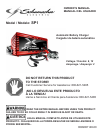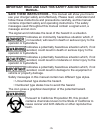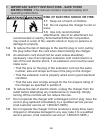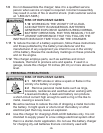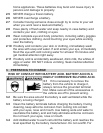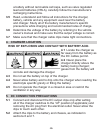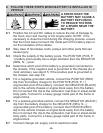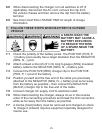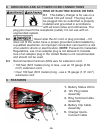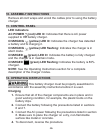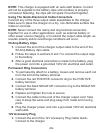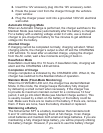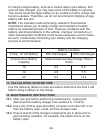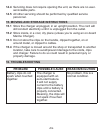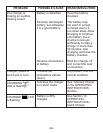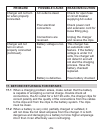
•7•
When disconnecting the charger, turn all switches to off (if 6.8
applicable), disconnect the AC cord, remove the clip from
the vehicle chassis and then remove the clip from the battery
terminal.
See CALCULATING CHARGE TIME for length of charge 6.9
information.
FOLLOW THESE STEPS WHEN BATTERY IS OUTSIDE 7.
VEHICLE
A SPARK NEAR THE
BATTERY MAY CAUSE A
BATTERY EXPLOSION.
TO REDUCE THE RISK
OF A SPARK NEAR THE
BATTERY:
Check the polarity of the battery posts. The POSITIVE (POS, P, 7.1
+) battery post usually has a larger diameter than the NEGATIVE
(NEG, N, -) post.
Attach at least a 24-inch (61 cm) long 6-gauge (AWG) insulated 7.2
battery cable to the NEGATIVE (NEG, N, -) battery post.
Connect the POSITIVE (RED) charger clip to the POSITIVE 7.3
(POS, P, +) post of the battery.
Position yourself and the free end of the cable you previously 7.4
attached to the NEGATIVE (NEG, N, -) battery post as far away
from the battery as possible – then connect the NEGATIVE
(BLACK) charger clip to the free end of the cable.
Connect charger AC supply cord to electrical outlet.7.5
When disconnecting the charger, always do so in the reverse 7.6
orderoftheconnectingprocedureandbreaktherstconnection
while as far away from the battery as practical.
A marine (boat) battery must be removed and charged on shore. 7.7
To charge it onboard requires equipment specially designed for
marine use.



